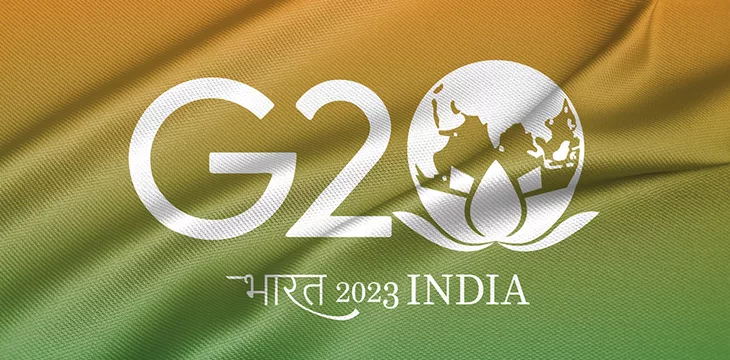
|
Getting your Trinity Audio player ready... |
India has released a ‘Presidency Note’ signaling its hope of shaping the organization’s agenda regarding digital asset regulation. The note emphasized the need for consistent digital asset rules across different jurisdictions.
The Presidency Note follows the July publication of the Financial Stability Board’s (FSB) final recommendations for a global regulatory framework supervising digital assets and stablecoins and precedes a joint ‘Synthesis Paper’ the FSB is to publish at the end of August with the International Monetary Fund (IMF), aimed at producing a comprehensive overview of risks across the financial system and incorporating a roadmap to establish a global framework for digital assets.
“With an aim to focus resources to avoid duplication across organizations, this note provides an important input for the IMF-FSB Synthesis Paper, which will incorporate a Roadmap on Establishing a Global Framework for Crypto Assets,” said the Presidency Note.
The six-page document also suggested the incorporation of seven “action points” into the Synthesis Paper roadmap, which included promoting the effective implementation of the FSB’s high-level recommendations, outreach to all jurisdictions to generate awareness of risks and assist with implementing recommendations, as well as improving global anti-money laundering and counter-terrorist financing standards.
G20 and India’s digital asset surge
The G20 is an intergovernmental forum comprising 19 countries and the European Union, representing around 85% of the world’s gross domestic product (GDP). It works to address major issues related to the global economy, such as international financial stability (the FSB works under the G20, advising it in this regard), climate change mitigation, and sustainable development.
The G20 does not have a permanent secretariat, with one member taking over the presidency each year to steer and coordinate the group’s agenda in consultation with other members and in response to developments in the global economy.
India assumed the presidency of the G20 in December 2022, and it’s perhaps no surprise that digital assets are high up the country’s agenda.
In 2023, India has, by a substantial distance, the largest number of digital asset-owning citizens—over 100 million—and the popularity of blockchain technology in the country is projected to increase by 46% in the coming year.
As G20 president, India hopes to coordinate the various organizations, including the FSB and IMF, in their digital asset work and help shape the future of global regulation in the sector.
Watch: India is building Web3 enabled payment rails
Recommended for you
Lorem ipsum odor amet, consectetuer adipiscing elit. Elit torquent maximus natoque viverra cursus maximus felis. Auctor commodo aliquet himenaeos fermentum
Lorem ipsum odor amet, consectetuer adipiscing elit. Accumsan mi at at semper libero pretium justo. Dictum parturient conubia turpis interdum

 11-22-2024
11-22-2024


